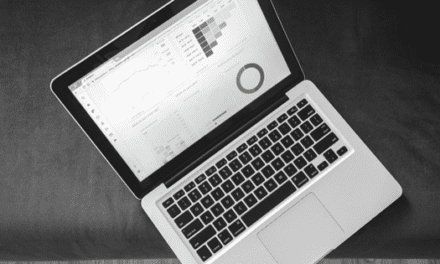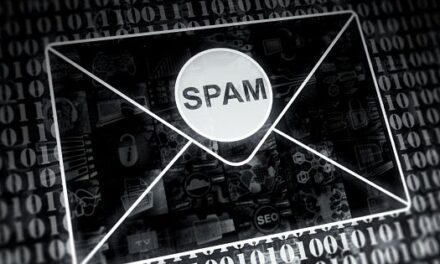As we approach the end of the financial year, it’s time to start thinking about what you need to do. You’re probably going to see a lot of lists (it’s a popular tax topic around this time) but this is a pretty well-detailed list, borne of my experience and qualifications in accounting, business management and, of course, lots of years as a business coach. This is geared for the business owner … although does include a few personal items. I’ve broken it up into now, June and July so you have a clear timeline. Now remember, I’m not a licensed tax agent, so don’t consider any of the following tax advice … I’m just prompting you. Seek professional advice from your accountant or licensed tax agent.

Tax Financial Year End Checklist
Now – April, May and even early June.
1. Visit your accountant.
Once the March BAS is lodged, it’s time to take your figures to your accountant for a little tax planning. This occurs best now … not sometime in the next financial year as some (legal) minimising tax strategies cannot be actioned after 30 June.
2. Update your records.
If your bookkeeping is behind, lacks accuracy, is dodgy or incomplete – now is the time to get that on track. Before you go seeing your accountant with figures – make sure those figures are accurate and current.
3. Update Pay Records.
Ensure you have a tax file number and address recorded for every staff member. Check with your staff (especially those who have left) that the address you have is current. It’s annoying a year later having to dig out a Payment Summary for someone who moved and didn’t bother to tell you.
4. Got everything? Ensure all deductions are claimed.
Especially things paid with cash (hope you’ve been keeping receipts!) or from a personal bank account. Make sure it’s all entered.
5. Top up Super or Wages.
As part of your tax planning with your accountant may be the discussion about topping up your super (or even the wages the business owners have drawn).
6. Bonuses?
Now might be the time to pay some well-deserved bonuses – rewarding your team AND getting the tax deduction. Just be sure to handle the tax on these properly.
7. Upgrade Assets.
Any asset purchase under $20K is immediately deductible. If something is on its last legs, then now is the time to replace it … before 30 June and get either the immediate deduction or the appropriate depreciation.
8. Websites.
Is your old website looking old or just not meeting your needs? Does it need a refresh or a complete re-do? This isn’t something which occurs overnight, but potentially at least the deposit might get paid before 30 June. If you need an intro to a great website designer, just ask me.
9. Stocktake.
If you have to do this, ensure you have the staff booked well in advance so it’s all hands on deck. Don’t assume they are free to work that weekend (30 June falls on a Saturday this year).
10. Vehicle Services.
If your vehicles or business equipment are due soon for a service, then now is the time to book them in. Don’t forget to look at your tyres.
11. Repairs.
Whether it’s repair of a vehicle, repair to a rental property or to a business property, now is the time to assess what needs to be done. However, don’t mix up repairs with capital improvements. Talk to your accountant if you are unsure BEFORE you take action.
12. Budgets.
Now is a great time to start thinking about your budgets for the next financial year. You still have a month to go, but why wait till the last minute. The value of budgets is enormous (and a whole other blog) so please ensure you have these in place in your business.
13. Marketing Plan & Budget.
Now may also be a great time to review your marketing plan (unless you’ve done recently or have a schedule time set already). Knowing what you will do in advance (and the associate budgeted cost) means you have a plan, structure and are not just marketing by the seat of your pants, willy-nilly or worse, forgetting to do at all.
June Action
14. Stock up – if you need it.
So stocking up on materials, consumables, stock, stationery, printer cartridges is all useful to help reduce your taxable income. However, don’t go berserk and buy too much which might not get used or go ‘off’. I generally look at buying so I don’t have to purchase anything in July or August.
15. Review.
Look at other things, like your computers or staff uniforms or office furniture. Are one of the computers running so incredibly slow it’s costing you money? Are half your staff looking ‘daggy’ due to old uniforms (or ill-fitting because they gained or lost weight)?
16. Pre-payments.
Some items can be prepaid, including leases, subscriptions, rent, insurances etc. If you are flush, then paying some of these in advance might work in your favour.
17. Payables/Receivables.
Now is the time to ensure these figures are right. If you know you’ll never see a customer payment, then now is the time to write it off. If you have ‘rubbish’ in your debtor or creditor listing (errors, tiny amounts not owing etc) then clean this up now before 30 June.
18. Deposits or Retentions.
Are these accounts in your accounting program accurate? If not, clean up.
19. Suspense or Miscellaneous.
If you (or your bookkeeper) has amounts in suspense, unknown or miscellaneous accounts, sort that out now before 30 June (ideally always before every monthly or quarterly BAS). Temporary or suspense accounts should end up with NO transactions in them – not just clearing back to zero.
20. Clearing accounts.
Speaking of these, clearing accounts usually clear back to zero (although some exceptions). If yours is supposed to clear to zero, then ensure it does.
21. Superannuation.
Remember that for super to be deductible in this financial year, the money must be in the hands of the super fund by 30 June. You can pay it, say 10 July (any time before 28th July) BUT if you pay after 30 June, it’s deductible in next year. Remember that writing a cheque (not that many of us do now) on say 30 June and posting it means it won’t clear your account till some time in July – so not claimable in this year.
22. Payroll.
If you have payroll, then I recommend you seek the assistance of an expert bookkeeper or advisor to help you ensure that your payroll balances, everything is right and you run off your Summaries correctly. The reason behind balancing is that about 2 years down the track the ATO will get around to its own balancing. For example, if your BASes W2 label added up to $5200 and your Payment Summaries added up to a completely different figure, you will get a ‘please explain’ letter. Just make sure it’s right now … far easier than an audit, review or re-issue of Summaries.
July Action – Happy New Year!
23. Finalise the Bookkeeping.
Get all the last of your data in and finalise your Bank Reconciliations.
24. New Tax Scales.
If there are new tax tables, these may need to be added (if you’re on non-subscription accounting software).
25. WorkCover, Portable Long Service Leave Certificate and others.
In certain industries, or if you are an employer, you have extra requirements in July – don’t forget to fill out the appropriate forms and reports.
26. Pay Rates.
Often pay rates increase 1st July … so check your award whether there is an increase you need to action. The super guarantee is not increasing this year. It’s not scheduled to increase to 10% until 1.7.2021.
27. If you have staff.
Issue Payment Summaries by 14th July and the overall Summary to the ATO (Empdupe) by 14th Firstly, check with your accountant if there are any FBT figures to be included.
28. Vehicle Log Books.
Whilst not specifically a thing to action EOFY, I believe now is a great time to look at when you did your last log book. They are good (assuming no significant changes) for 5 years. You’d be surprised how quickly 5 years comes along!
29. Got everything. One final check of your records.
Make sure you have all your dockets, Payment Summaries (inwards) and everything all together in one folder – whether that’s a physical folder in a filing cabinet or digital folder on your computer – make sure you have everything all together. For individuals or investing bodies (such as a Super Fund), this may also include all Dividend Statements and Tax Summaries. If you’re not organised yet, then get started and have a neat and consistent filing system in place.
30. Get your June BAS done and then why not send your data file to your accountant?
There is no reason to leave it till the last minute. You can liaise with them about the date of lodgement, but better to get the ball rolling now than have that last minute panic in May.
So, happy End of Financial Year. If your upcoming budget is allowing for business growth and getting professional advice and assistant from an expert, then may I offer you a complimentary consultation to discuss your needs and how I can help you with business coaching. Call me on 0411 622 666 or email donna@donna-stone.com.au. The best time to action this is NOW.






















